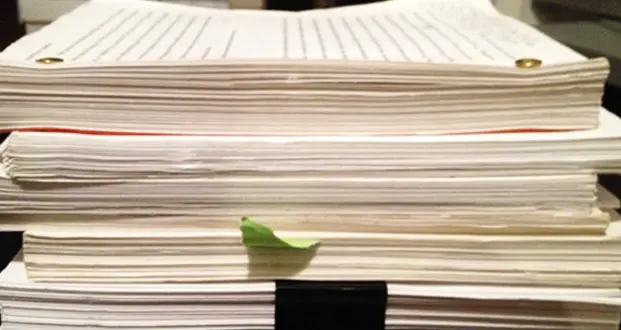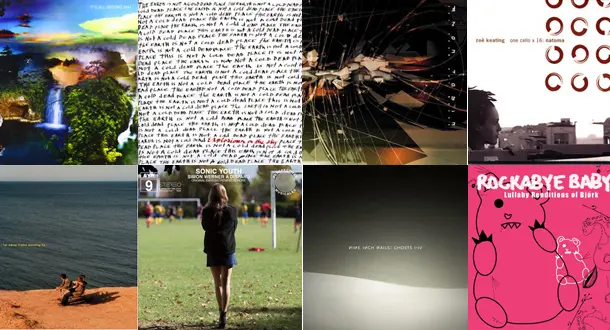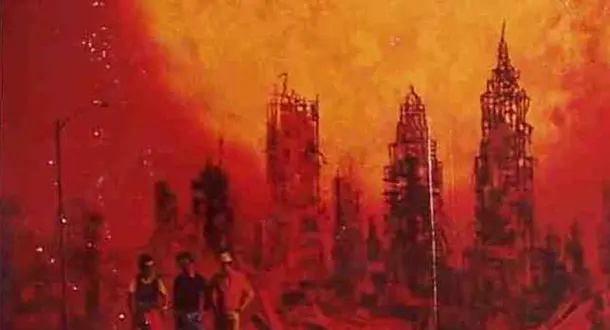Menu
Columns
Showing 3546 Columns
Showing 3546 Columns
November 20th, 2013

Do you ever look at our bookshelves and feel a strange malaise? That same kind of feeling a look at the oldest clothes in your closet produces? Do you own books you think you should read, but deep down, you know you never will? Do you still have that little gift store book about spooning your ex gave you? A yes to any of these questions means your collection is a prime candidate for weeding.
Read Column →November 19th, 2013

Thanks to some excellent articles on mental health from LitReactor's own Nathan Scalia and Robbie Blair, I finally feel both comfortable and inspired enough to discuss how writing has helped me through my struggle with psychosis. For anyone unfamiliar with that word, it's a fancy medical term for being crazy.
Read Column →November 18th, 2013

About half a dozen years ago I realized that if I ever wanted to be successful at anything, I had to pick ONE thing. I was a jack-of-all-trades, master-of-nothing kind of gal, and while I'll probably never truly master anything, I realized that I wasn't nearly gifted enough to be successful in multiple writing-related areas, certainly not when I hadn't yet accomplished anything major in my writing-related life.
Read Column →November 18th, 2013

When everyone thinks of the writing process, they think of two scenarios:
Read Column →November 15th, 2013

Do you listen to music when you write? If so, have you ever felt the music you listen to while hammering out those first drafts distracts you from the work at hand? Have you ever struggled to find the perfect album for the mood or atmosphere of your piece? Perhaps you've never put on a record while working, simply because you just don't know where to start.
Read Column →November 14th, 2013

My dad and I have what you might call a “cordial” relationship now that I’m (ostensibly) grown and out of the house. Superficially, we don’t have a lot in common, which means much of our day to day (or month to month, as is often the case) conversation is relegated to political arguments—something I attempted to put to bed on my last visit home—and discussions of culture. As far as shared experiences go, however, these days, they’re mostly limited to family gatherings and the occasional movie screenings I force on him.
Read Column →November 14th, 2013

Your plants are unwatered. Your hamster unfed. Despite Leah Dearborn’s exhortations to the contrary, your relatives have filed a missing persons report and you went to work in your slippers. NaNoWriMo has not only taken over your life, it has mushed your face slap bang against the harsh realities of writing fiction for a living.
Read Column →November 13th, 2013

By now we all acknowledge that science fiction isn’t pulpy wish-fulfillment for nerds and literary novels aren’t pretentious bore-fests for academics. Well, I mean, they are that, sometimes. But they can also be so much more. And despite screams of protest from fans of both genres, these paper-bound proton packs cross streams more often than you'd think, with varying results.
Read Column →November 13th, 2013

Yes, yes, creative nonfiction does sound like an oxymoron, and even though it seems to have become en vogue only recently, it’s really the oldest genre there is. In the long, long time ago, there was little distinction between writing that was based on fact and writing that conveyed a fictional story. I’m sure there is room for debate here, but consider the etymology of the word novel.
Read Column →November 12th, 2013

I live ninety miles from Indianapolis, Indiana, the birthplace of Kurt Vonnegut and the capital of Midwestern mundanity, although I've long maintained this part of the country is more Mideast than Midwest. I suppose that's neither here nor there, and you probably don't care either way, unless you also live around these parts, in which case I'm the one who doesn't care.
Read Column →Submitting your manuscript?
Professional editors help your manuscript stand out for the right reasons.
